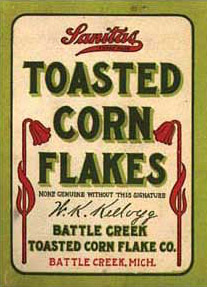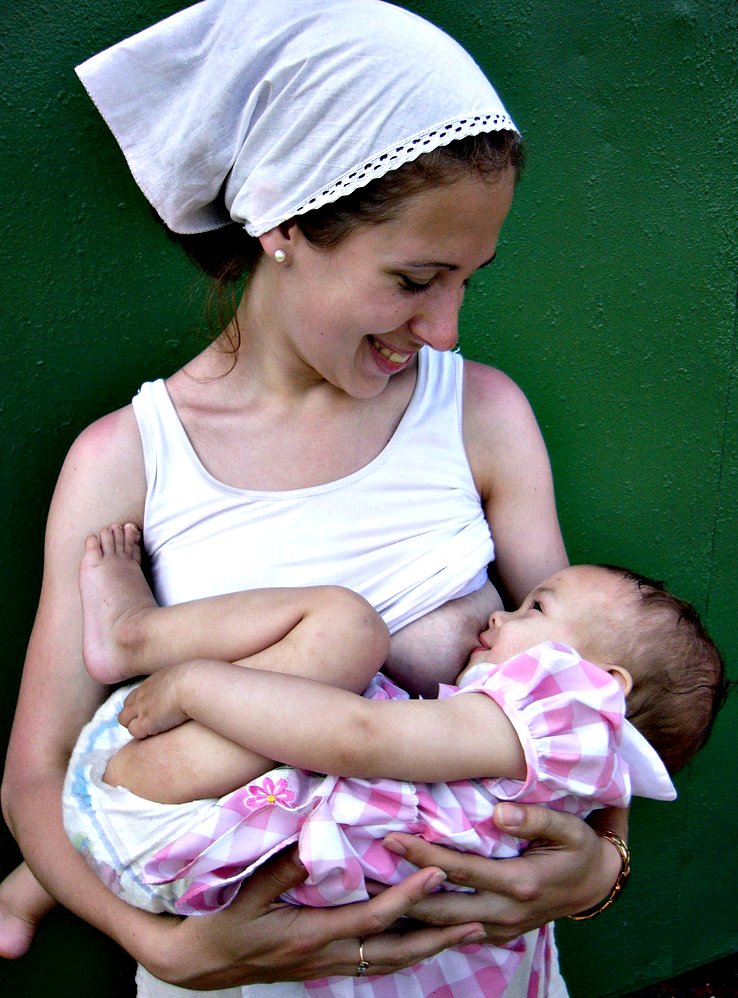|
Gardenburger
Gardenburger is the brand name of a veggie burger sold in the United States. It was developed in the early 1980s by Paul Wenner, the owner of the Gardenhouse, a vegetarian restaurant in Gresham, Oregon. It is currently owned by Kellanova. History The Gardenburger was developed by Paul Wenner around 1981 or 1982 in Wenner's vegetarian restaurant, The Gardenhouse, in Gresham, Oregon. The company was incorporated as Wholesome & Hearty Foods, Inc., in March 1985. Initial funding was given to founders Paul Wenner and Allyn Smaaland as part of a venture capital investment program of Louisiana-Pacific Corp., whereby L-P took immediate controlling interest. A second round of venture capital financing was provided about a year later. In 2005, Gardenburger filed for bankruptcy, though it continued operation by becoming privately held. In 2006, Gardenburger announced that it had taken eggs out of all of its products except for one private-sourced item, which now contains organic, cage ... [...More Info...] [...Related Items...] OR: [Wikipedia] [Google] [Baidu] |
Veggie Burger
A veggie burger or meatless burger is a hamburger made with a patty that does not contain meat, or the patty of such a hamburger. The patty may be made from ingredients like beans (especially soybeans and tofu), nut (fruit), nuts, grains, seeds, or fungi such as Edible mushroom, mushrooms or mycoprotein. The essence of the veggie burger patty has existed in various Eurasian cuisines for millennia, including in the form of grilled or fried meatless discs, or as koftas, a commonplace item in Indian cuisine. These may be made of entirely vegetarian ingredients such as legumes or other plant-derived proteins. Preparation Whilst commercial brands of veggie burger are widespread, hundreds of recipes exist for veggie burgers online and in cookbooks, aimed at the home cook and based on cereal grains, nuts, seeds, breadcrumbs, beans, textured soya protein, with starchy flours or flaxseed meal to stabilize the mix. Recipes offer a variety of flavors and textures, often containing herbs a ... [...More Info...] [...Related Items...] OR: [Wikipedia] [Google] [Baidu] |
Kellanova
Kellanova, formerly known as the Kellogg Company and commonly known as Kellogg's, is an American multinational food manufacturing company headquartered in Chicago, Illinois, US. Kellanova produces and markets convenience foods and snack foods, including crackers and toaster pastries, cereal, and markets their products by several well-known brands including the Kellogg's brand itself, Rice Krispies Treats, Pringles, Eggo, and Cheez-It. Outside North America, Kellanova markets cereals such as Corn Flakes, Rice Krispies, Frosties and Coco Pops. Kellogg's products are manufactured and marketed in over 180 countries. Kellanova's largest factory is at Trafford Park in Greater Manchester, United Kingdom, which is also the location of its UK headquarters. Other corporate office locations outside of Chicago include Battle Creek, Dublin (European Headquarters), Shanghai, and Querétaro City, Mexico. Kellogg's held a Royal Warrant from Queen Elizabeth II until her death in 202 ... [...More Info...] [...Related Items...] OR: [Wikipedia] [Google] [Baidu] |
Veggie Burger
A veggie burger or meatless burger is a hamburger made with a patty that does not contain meat, or the patty of such a hamburger. The patty may be made from ingredients like beans (especially soybeans and tofu), nut (fruit), nuts, grains, seeds, or fungi such as Edible mushroom, mushrooms or mycoprotein. The essence of the veggie burger patty has existed in various Eurasian cuisines for millennia, including in the form of grilled or fried meatless discs, or as koftas, a commonplace item in Indian cuisine. These may be made of entirely vegetarian ingredients such as legumes or other plant-derived proteins. Preparation Whilst commercial brands of veggie burger are widespread, hundreds of recipes exist for veggie burgers online and in cookbooks, aimed at the home cook and based on cereal grains, nuts, seeds, breadcrumbs, beans, textured soya protein, with starchy flours or flaxseed meal to stabilize the mix. Recipes offer a variety of flavors and textures, often containing herbs a ... [...More Info...] [...Related Items...] OR: [Wikipedia] [Google] [Baidu] |
Kellogg's Brands
Kellanova, formerly known as the Kellogg Company and commonly known as Kellogg's, is an American multinational food manufacturing company headquartered in Chicago, Illinois, US. Kellanova produces and markets convenience foods and snack foods, including crackers and toaster pastries, cereal, and markets their products by several well-known brands including the Kellogg's brand itself, Rice Krispies Treats, Pringles, Eggo, and Cheez-It. Outside North America, Kellanova markets cereals such as Corn Flakes, Rice Krispies, Frosties and Coco Pops. Kellogg's products are manufactured and marketed in over 180 countries. Kellanova's largest factory is at Trafford Park in Greater Manchester, United Kingdom, which is also the location of its UK headquarters. Other corporate office locations outside of Chicago include Battle Creek, Dublin (European Headquarters), Shanghai, and Querétaro City, Mexico. Kellogg's held a Royal Warrant from Queen Elizabeth II until her death in 2022. ... [...More Info...] [...Related Items...] OR: [Wikipedia] [Google] [Baidu] |
List Of Meat Substitutes
This is a list of meat substitutes. A meat substitute, also called a meat analogue, approximates certain aesthetic qualities (primarily texture, flavor and appearance) or chemical characteristics of a specific meat. Substitutes are often based on soybeans (such as tofu and tempeh), gluten, or peas. Whole legumes are often used as a protein source in vegetarian dishes, but are not listed here. General * Vegetarian bacon – sometimes made from tempeh. * Vegetarian sausage ** Vegetarian hot dog *** Carrot hot dog * Vegetarian burger * Vegan chicken nuggets – made from pea protein, soy protein, textured vegetable protein, and wheat gluten * Tofurkey – faux turkey, a meat substitute in the form of a loaf or casserole of vegetarian protein, usually made from tofu (soybean protein) or seitan (wheat protein) with a stuffing made from grains or bread, flavored with a broth and seasoned with herbs and spices *Cauliflower – coated in flour and baked or fried to imitate chicken w ... [...More Info...] [...Related Items...] OR: [Wikipedia] [Google] [Baidu] |
History Of Gresham, Oregon
History is the systematic study of the past, focusing primarily on the human past. As an academic discipline, it analyses and interprets evidence to construct narratives about what happened and explain why it happened. Some theorists categorize history as a social science, while others see it as part of the humanities or consider it a hybrid discipline. Similar debates surround the purpose of history—for example, whether its main aim is theoretical, to uncover the truth, or practical, to learn lessons from the past. In a more general sense, the term ''history'' refers not to an academic field but to the past itself, times in the past, or to individual texts about the past. Historical research relies on primary and secondary sources to reconstruct past events and validate interpretations. Source criticism is used to evaluate these sources, assessing their authenticity, content, and reliability. Historians strive to integrate the perspectives of several sources to develop a ... [...More Info...] [...Related Items...] OR: [Wikipedia] [Google] [Baidu] |
Meat Substitutes
A meat alternative or meat substitute (also called plant-based meat, mock meat, or alternative protein), is a food product made from vegetarian or vegan ingredients, eaten as a replacement for meat. Meat alternatives typically approximate qualities of specific types of meat, such as mouthfeel, flavor, appearance, or chemical characteristics. Plant- and fungus-based substitutes are frequently made with soy (e.g. tofu, tempeh, and textured vegetable protein), but may also be made from wheat gluten as in seitan, pea protein as in the Beyond Burger, or mycoprotein as in Quorn. Alternative protein foods can also be made by precision fermentation, where single cell organisms such as yeast produce specific proteins using a carbon source; as well as cultivated or laboratory grown, based on tissue engineering techniques. The ingredients of meat alternative include 50–80% water, 10–25% textured vegetable proteins, 4–20% non-textured proteins, 0–15% fat and oil, 3-10% f ... [...More Info...] [...Related Items...] OR: [Wikipedia] [Google] [Baidu] |
Food Product Brands
Food is any substance consumed by an organism for nutritional support. Food is usually of plant, animal, or fungal origin and contains essential nutrients such as carbohydrates, fats, proteins, vitamins, or minerals. The substance is ingested by an organism and assimilated by the organism's cells to provide energy, maintain life, or stimulate growth. Different species of animals have different feeding behaviours that satisfy the needs of their metabolisms and have evolved to fill a specific ecological niche within specific geographical contexts. Omnivorous humans are highly adaptable and have adapted to obtaining food in many different ecosystems. Humans generally use cooking to prepare food for consumption. The majority of the food energy required is supplied by the industrial food industry, which produces food through intensive agriculture and distributes it through complex food processing and food distribution systems. This system of conventional agriculture relies he ... [...More Info...] [...Related Items...] OR: [Wikipedia] [Google] [Baidu] |
Milk
Milk is a white liquid food produced by the mammary glands of lactating mammals. It is the primary source of nutrition for young mammals (including breastfeeding, breastfed human infants) before they are able to digestion, digest solid food. Milk contains many nutrients, including calcium and protein, as well as lactose and saturated fat; the enzyme lactase is needed to break down lactose. Immune factors and immune-modulating components in milk contribute to milk immunity. The first milk, which is called colostrum, contains antibody, antibodies and immune-modulating components that milk immunity, strengthen the immune system against many diseases. As an agricultural product, Milking, milk is collected from farm animals, mostly cattle, on a dairy. It is used by humans as a drink and as the base ingredient for dairy products. The US Centers for Disease Control and Prevention, CDC recommends that children over the age of 12 months (the minimum age to stop giving breast milk or Ba ... [...More Info...] [...Related Items...] OR: [Wikipedia] [Google] [Baidu] |
Dairy Products
Dairy products or milk products are food products made from (or containing) milk. The most common dairy animals are cow, water buffalo, goat, nanny goat, and Sheep, ewe. Dairy products include common grocery store food around the world such as yogurt, cheese, milk and butter. A facility that produces dairy products is a ''dairy''. Dairy products are consumed worldwide to varying degrees. Some people avoid some or all dairy products because of lactose intolerance, veganism, Environmental issues, environmental concerns, other health reasons or beliefs. Types of dairy product Milk Milk is produced after optional Homogenization (chemistry), homogenization or pasteurization, in several grades after standardization of the fat level, and possible addition of the bacteria ''Streptococcus lactis'' and ''Leuconostoc citrovorum''. Milk can be broken down into several different categories based on type of product produced, including cream, butter, cheese, infant formula, and yogurt. ... [...More Info...] [...Related Items...] OR: [Wikipedia] [Google] [Baidu] |
Animal Product
An animal product is any material derived from the body of a non-human animal or their excretions. Examples are meat, fat, blood, milk, eggs, honey, and lesser known products, such as isinglass, rennet, and cochineal. The word animals includes all species in the biological kingdom Animalia, except humans. This includes, for example, tetrapods, arthropods, and mollusks. Generally, products made from decomposed animals, such as petroleum, or crops grown in soil fertilized with animal remains or manure are not characterized as animal products. Products sourced from humans (e.g. breast milk) are not typically classified as animal products. Increased production and consumption over the past 50 years has led to widespread environmental and animal welfare impacts. These range from being linked to 80% of Amazonian deforestation to the welfare implications of using chick culling shredders on live day old-chicks for 7 billion of them each year. Several popular diet patterns ... [...More Info...] [...Related Items...] OR: [Wikipedia] [Google] [Baidu] |









